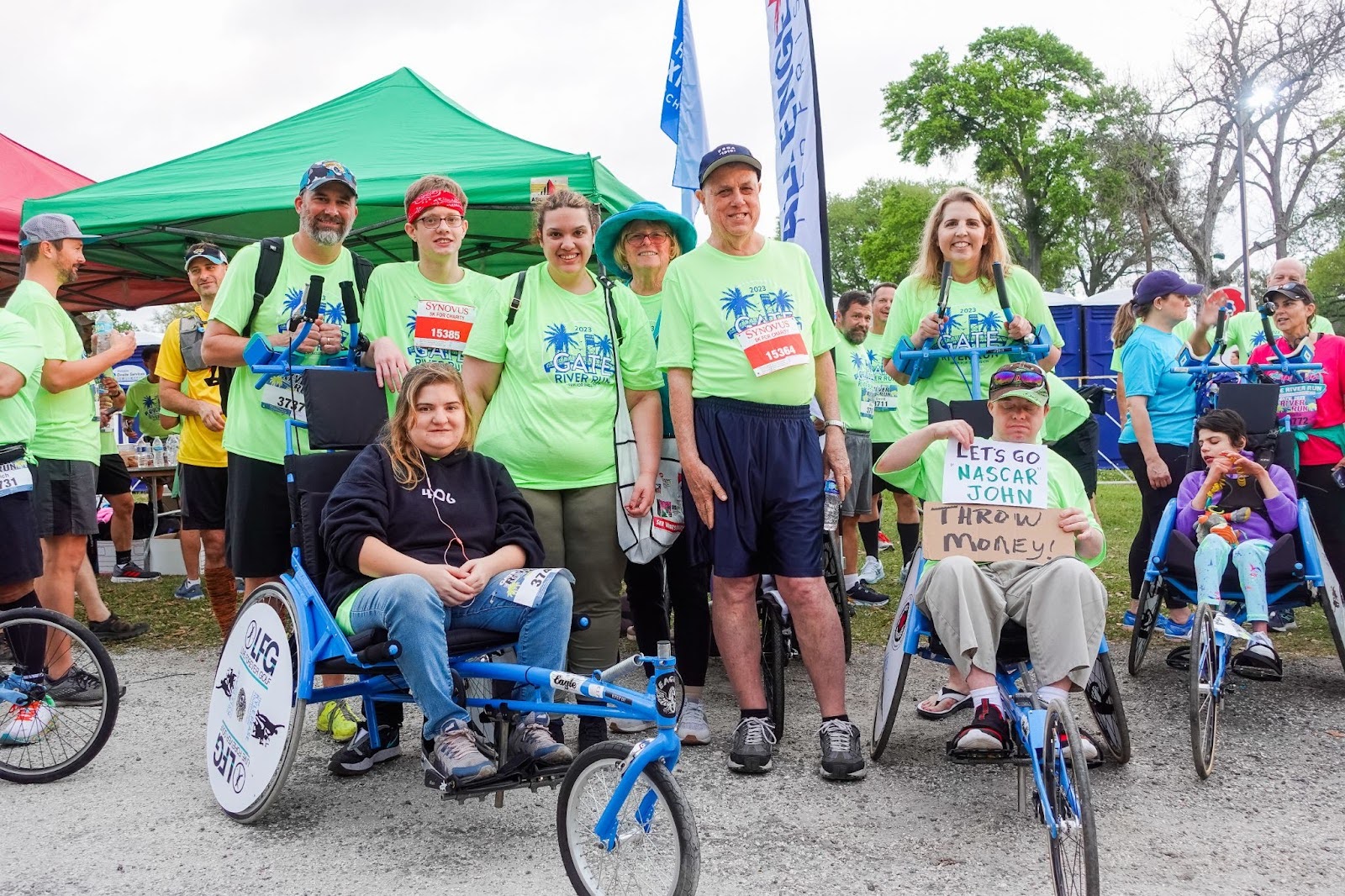Volunteer FAQs
Have questions? We’re here to help.
Want to get involved but not sure where to start? Here are answers to some of the most common questions about volunteering with The Ability Experience. Whether you’ve got an hour, a weekend or a big idea, we’ve got a place for you. Ready to get involved?

Absolutely! Your time and talents are just as valuable as a gift. From cheering at team arrivals to helping with construction at Ability Camps, volunteers make our mission possible. Not sure where to plug in? Just ask and we’ll help you find a role that matches your interests and availability.
It’s entirely up to you. Some opportunities are as simple as joining a Friendship Visit or helping host a meal. Others, like assisting with overnight lodging or serving as a local advisor, may take more time. No matter how much time you have to give, your support makes a difference.
Journey of Hope, Gear Up Florida and Gear Up New York are always looking for friendly faces and helping hands. You can cheer at arrival events, help coordinate meals or lodging or connect us with local groups or businesses that want to contribute.
You can host the team at a restaurant, deliver food to their lodging site or coordinate with a civic group, church or family to make it happen. If you’re unable to host, a donation toward a team meal is always appreciated. Our logistics team will help you arrange everything.
No problem! Regional or local events like Ability Camps and Ability Experience Challenges still need volunteers for cheering, construction support, meals, tools and logistics. You can also support local Pi Kappa Phi chapters with planning, training or facilitating events in your community.
Yes! Volunteers play a huge role in our larger events. For example, volunteers support Ability Experience Challenges runners and walkers at the Around the Crown 10K by organizing rally corners — groups that cheer runners on and boost morale.
Chapters host on-campus events, fundraising campaigns and service projects throughout the year. Volunteers can assist as advisors, planners or community connectors, helping build long-term partnerships with local organizations that serve people with disabilities.
